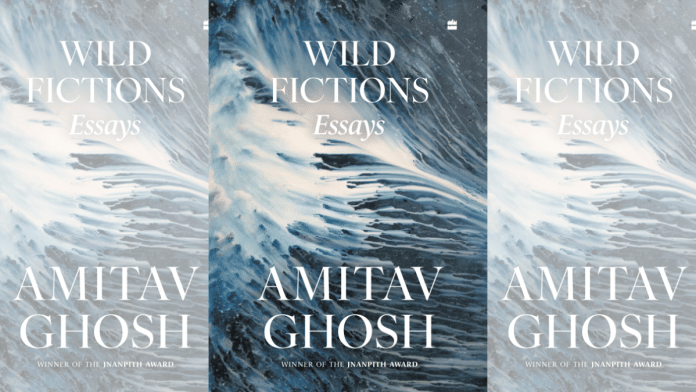Wild Fictions brings together Amitav Ghosh’s exceptional writings over the past twenty-five years, covering themes that have long captured his interest: literature and language, climate change and the environment, and the human experience of travel and discovery. The ways in which we inhabit and interact with the spaces around us are a central thread running through this expansive collection.
From the impact of clove commodification to the diversity of Bengal’s mangrove forests and the fluid nature of multilingualism, Wild Fictions challenges imperial violence, explores the narratives we create to understand history, and underscores the need for sensitivity and empathy.
With his trademark combination of moral urgency, intellectual curiosity, and literary grace, Ghosh offers fresh perspectives on the world. The essays in this collection guide readers toward mending relationships and restoring harmony with the ever-changing landscapes to which we all belong.
Published by HarperCollins India, ‘Wild Fictions’ will be released on 27 January on SoftCover, ThePrint’s online platform for launching non-fiction books.
Amitav Ghosh was born in Calcutta and grew up in India, Bangladesh, and Sri Lanka; he studied in Delhi, Oxford, and Alexandria. He is the author of several acclaimed works of fiction and non-fiction, including The Shadow Lines, The Glass Palace, The Hungry Tide, the Ibis Trilogy (comprising the novels Sea of Poppies, River of Smoke, and Flood of Fire), The Great Derangement, Gun Island, The Nutmeg’s Curse, Jungle Nama, The Living Mountain, and Smoke and Ashes.
Amitav Ghosh’s work has been translated into more than thirty languages. He has been awarded and felicitated across the world. In 2019, Foreign Policy magazine named him one of the most important global thinkers of the past decade. The same year, the Jnanpith Award, India’s highest literary honour, was conferred on him: he was the first English-language writer to receive it. In 2024, he was awarded the prestigious Erasmus Prize for his writings on the planetary crisis and climate change.
Also Read: New book presents Ghalib’s couplet to modern audiences






